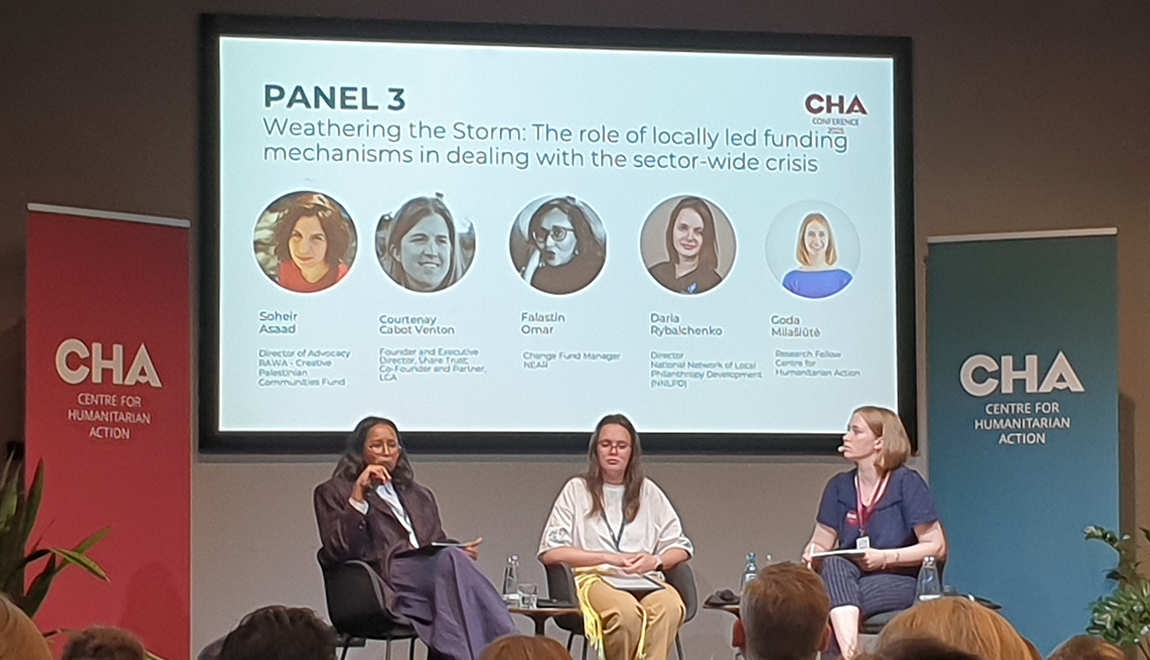CHA25 CONFERENCE: REIMAGINING HUMANITARIAN AID THROUGH LOCALISATION AND LOCAL SOLUTIONS
At the CHA25 conference in Berlin, the future of humanitarian aid was explored through key discussions on the politicisation of aid, the funding crisis, and the growing role of local actors. According to OCHA (Office for the Coordination of Humanitarian Affairs), funding for humanitarian aid has surged dramatically over the last decade but is now facing a decline of a third in available resources. This marks the end of a period of greater commitment by industrialised countries to humanitarian aid, prompting calls to reimagine the system and shift focus towards localisation and prioritising the most vulnerable populations – all with a strong commitment to International Humanitarian Law and its principles of humanity, impartiality, neutrality and independence.
One of the standout moments came from Daria Rybalchenko, of the Ukrainian National Network of Local Philanthropy Development, who emphasised: “You cannot teach a hungry fisherman how to fish, so give them food and teach them the necessary skills.” This metaphor underscores the ongoing need to combine humanitarian aid with development cooperation at the community level. While the Nexus approach continues to be discussed, it remains underutilised at grassroots levels, reflecting a gap in implementation.
For GFA Consulting Group, a key takeaway from the conference was the increasing significance of cash-based interventions and the critical role of local actors in aid distribution. Discussions highlighted the necessity for stronger community involvement and more efficient funding mechanisms, with a shift towards country-based pooled funds and flexible funding to ensure aid is targeted where it’s most needed.
This resonates with GFA’s experience in Nigeria, where the SEPIN project, commissioned by GIZ, is already implementing a cash-based project for IDPs, returnees, and vulnerable host communities. The project, part of a broader effort to strengthen economic resilience, utilises cash transfers as a vital tool to support basic needs, enhance livelihoods, and promote financial inclusion. SEPIN emphasises the importance of flexible, locally driven solutions that empower communities and ensure aid is distributed effectively – a core message from the CHA25 conference discussions.
As the sector continues to evolve, there is a critical need for stronger collaboration between humanitarian and development actors, especially in terms of localisation and community-driven solutions. This is a direction that GFA is committed to advancing in the projects it implements, helping to shape a more effective, inclusive, and sustainable future for displaced populations and communities in fragile contexts worldwide.






